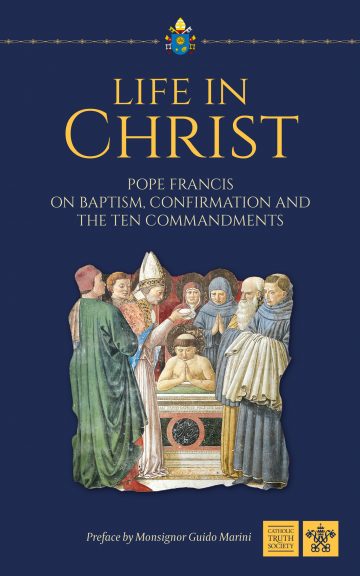Do Not Covet your Neighbour’s Wife; Do Not Covet your Neighbour’s Goods – Catechesis by Pope Francis
Our sessions on the Decalogue lead us to the last Commandment. We heard it at the opening. These are not only the final words of the text, but much more: they are the fulfilment of the journey through the Decalogue, touching the heart of all that it consigns. In fact, on a closer look, no new content is being added: the indications “you shall not covet your neighbour’s wife” and “you shall not covet your neighbour’s goods” are at least latent in the Commandments on adultery and theft; so what is the function of these words? Is it a summary? Is it something more?
Let us keep well in mind that the purpose of all the Commandments is to indicate life’s boundaries, the limits beyond which man destroys himself and neighbour, ruining his relationship with God. If you go beyond these, you destroy yourself, you also destroy your relationship with God and your relationship with others. The Commandments point this out. Through this last word the fact is emphasised that all transgressions spring from a common inner root: evil desires. All sins are born from an evil desire. All. There, the heart begins to move and one sets out on that wave and ends up in transgression. But not a formal, legal transgression: a transgression that wounds oneself and others.
In the Gospel Jesus says it explicitly: “from within, out of the heart of man, come evil thoughts, fornication, theft, murder, adultery, coveting, wickedness, deceit, licentiousness, envy, slander, pride, foolishness. All these evil things come from within, and they defile a man” (Mk 7:21-23).
Thus we understand that the whole itinerary outlined by the Decalogue would have no utility whatsoever if it did not reach this level, the heart of man. Where do these awful things come from? The Decalogue is clear and profound in this aspect: this journey’s point of arrival – the last Commandment – is the heart, and if this, if the heart is not liberated, the rest serves little purpose. This is the challenge: to liberate the heart from all these evil and awful things. God’s precepts can be reduced to being no more than the lovely facade of a life that nevertheless continues to be an existence of slaves, not of children. Often, something unsightly and unresolved is hidden behind the pharisaic mask of suffocating propriety.
We must instead allow ourselves to be unmasked by these Commandments on desire, so they may show us our poverty, in order to lead us to a holy humiliation. Each of us can ask ourselves: which awful desires do I most often feel? Envy, greed, gossip? All these things that come to me from inside. We each can ask ourselves this and it will do us good. Man needs this blessed humiliation: by which he discovers he cannot free himself on his own, which is why he cries out to God in order to be saved. Paul explains it in an unparalleled way, referring precisely to the Commandment you shall not covet (Rom 7:7-24).
It is vain to think we can correct ourselves without the gift of the Holy Spirit. It is vain to think we can purify our heart through a tremendous effort of our own will: this is not possible. We must open ourselves to the relationship with God, in truth and in freedom: only in this way can our efforts bear fruit, because the Holy Spirit is there to carry us forward.
The task of Biblical Law is not to delude man that literal obedience leads him to a contrived but unreachable salvation. The Law’s task is to lead man to his truth, or to his poverty, which becomes the authentic opening and personal opening to God’s mercy, which transforms us and renews us. God is the only one able to renew our heart, provided we open our heart to him: it is the sole condition. He does everything but we must open our heart to him.
The final words of the Decalogue teach everyone to acknowledge that we are beggars; they help us to face the turmoil of our heart, in order to stop living selfishly and to become poor in spirit, authentic in the sight of God, allowing ourselves to be redeemed by the Son and to be tempered by the Holy Spirit. The Holy Spirit is the teacher who guides us: let us allow ourselves to be helped. We are beggars, let us ask for this grace.
“Blessed are the poor in spirit, for theirs is the kingdom of heaven” (Mt 5:3). Yes, blessed are those who stop deluding themselves into believing that they can save themselves from their own weaknesses without God’s mercy which alone can heal. Only God’s mercy can heal hearts. Blessed are those who recognise their evil desires and who, with a contrite and humbled heart, stand before God and others not as righteous but as sinners. What Peter said to the Lord is beautiful: “Depart from me, Lord, for I am a sinful man”. This is a beautiful prayer: “Depart from me, Lord, for I am a sinful man”.
They are the ones who know how to have compassion, who know how to have mercy for others because they experience it themselves.
General Audience, 21st November 2018, St Peter’s Square.
This blog is an extract from Life in Christ – Pope Francis on Baptism, Confirmation, and the Ten Commandments.


